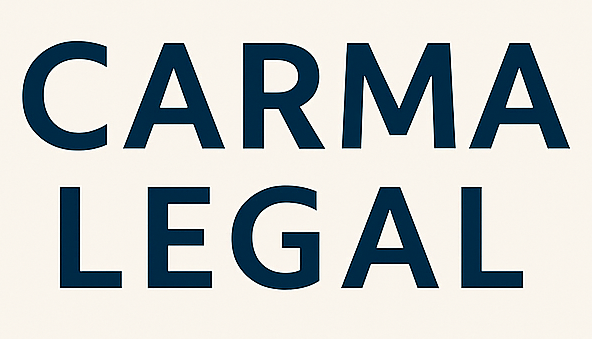Whether you were shopping for back-to-school supplies or grabbing a bite at the food court, an unexpected fall or other injury at a mall can leave you facing steep medical bills, lost income, and lasting pain. If you have been hurt on another person’s property, you should consider consulting a shopping mall accident lawyer. Premises liability claims hinge on proving negligence, preserving critical evidence, and meeting strict deadlines. In this article, you’ll learn why working with an experienced mall injury attorney can protect your rights and help you pursue the full compensation you deserve.
Understand premises liability
Premises liability is the legal doctrine that holds property owners and occupiers responsible for injuries suffered by visitors due to unsafe conditions. When you enter a shopping mall, the owner and its tenants owe you a duty of care—a requirement to keep common areas free of hazards and to warn of known dangers.
Duty of care
Property owners must regularly inspect, maintain, and repair walkways, escalators, entrances, parking lots, and other public spaces. If an owner or tenant fails to address a slippery floor, broken stair, or inadequate lighting, that breach of duty can form the basis of your claim.
Comparative negligence
In many states, your compensation can be reduced if you share fault for the accident. For example, if you were texting while walking and fail to notice a wet spill, the court may assign you a percentage of responsibility. A skilled attorney will work to minimize your share of fault under comparative negligence rules and protect your recovery.
Spot common mall hazards
Shopping malls are bustling venues with diverse risks. Identifying the hazard that caused your injury is crucial for building a strong claim. Common dangers include:
- Slip and trip hazards – Wet floors, recently waxed tiles, loose carpeting, debris, and poor lighting frequently cause falls. These incidents can lead to fractures, sprains, concussions, and long-term disabilities [1]. If your fall involved an icy entrance, you may need a slip and fall on ice lawyer.
- Mechanical failures – Escalators and elevators require routine inspections and maintenance. A sudden jerk or mechanical malfunction can throw you off balance, causing serious injuries [1].
- Parking lot risks – Vehicle collisions, pedestrian-vehicle accidents, and trips over potholes or debris are common outside storefronts. Insufficient lighting and unclear signage can heighten these dangers [1].
- Falling objects – Improperly stacked merchandise or unsecured displays may shift or collapse, striking unsuspecting shoppers and resulting in head injuries or fractures.
- Security lapses – Malls must maintain adequate surveillance, well-trained personnel, and emergency response plans. Criminal assaults, robberies, and other violent acts in poorly monitored areas can lead to both physical harm and emotional trauma [2]. If you were harmed due to negligent security, contact a negligent security attorney.
Pinpoint liable parties
In a shopping mall accident, responsibility may extend beyond a single entity. Your lawyer will investigate and identify every party whose negligence contributed to your injury:
- Mall owner or operator – Responsible for overall design, maintenance, lighting, and security.
- Store tenants – Retailers must maintain safe aisles, clean up spills promptly, and warn customers of hazards.
- Maintenance or cleaning contractors – Companies hired to polish floors or repair walkways must follow industry standards.
- Security firms – Third-party guards or patrol services owe a duty to deter crime and assist injured patrons.
- Manufacturers and suppliers – Escalator parts, display fixtures, and flooring materials may be defective or improperly installed.
By uncovering all potentially liable parties, you preserve your right to full compensation.
Secure vital evidence
Building a premises liability claim demands thorough documentation. A shopping mall accident lawyer will help you:
Document the scene
Take clear, timestamped photographs of the hazard, your injuries, and any visible signage or warnings.
Interview witnesses
Gather contact information for employees, other shoppers, or security personnel who saw the incident.
Slip and fall lawyers routinely interview witnesses to corroborate your version of events [3].
Preserve surveillance footage
Request video recordings from the mall’s security department before they are overwritten.
Obtain maintenance records
Your attorney will seek cleaning logs, inspection reports, and repair orders to show the property owner knew or should have known about the dangerous condition.
Maximize your compensation
A qualified attorney will calculate all damages you may be entitled to, including:
- Medical expenses – Emergency treatment, hospital stays, surgeries, physical therapy, and future care.
- Lost wages – Income lost during your recovery, as well as diminished earning capacity if you sustain a permanent impairment.
- Pain and suffering – Compensation for physical discomfort, emotional distress, loss of enjoyment of life, and disfigurement.
- Property damage – Repair or replacement costs for electronics, clothing, eyewear, or other items ruined in the accident [2].
Insurance adjusters often undervalue claims. Your attorney’s negotiation skills and litigation readiness will help you secure a fair settlement. If negotiations stall, they can file suit and advocate for you in court.
Navigate legal complexities
Premises liability claims involve numerous deadlines, rules, and insurance tactics:
- Statute of limitations – Each state sets a time limit for filing a lawsuit. For instance, New Jersey grants just two years from the accident date to sue the mall or store owner [4].
- Comparative fault rules – Understanding how your own actions may reduce your award is vital.
- Insurance company strategies – Carriers may dispute liability, challenge injury severity, or pressure you into a quick, low-ball offer.
A seasoned premises liability lawyer will guide you through these pitfalls and ensure your claim advances smoothly.
Choose the right lawyer
Selecting an attorney who specializes in mall accidents can make a significant difference:
Specialization and experience
Look for a firm with a proven track record in slip, trip, and fall claims. An expert in premises liability knows how to build a strong case against mall owners, tenants, and contractors.
Fee structure
Most accident attorneys work on a contingency basis, meaning you pay no attorney fees unless they recover compensation on your behalf. Confirm this arrangement upfront.
Client reviews and results
Read testimonials, case studies, and published settlement figures. A reputable store accident injury attorney will share examples of past successes and client satisfaction.
Act without delay
Prompt action strengthens your case and protects your legal rights. After an accident, you should:
Seek medical attention
Even if injuries seem minor, a medical evaluation creates an official record of harm.
Report the incident
Notify mall management or security in writing and request a copy of the incident report.
Preserve personal records
Keep all bills, pay stubs, correspondence, and notes about lost leisure time or reduced quality of life.
Consult a lawyer promptly
Contact a qualified personal injury attorney slip and fall as soon as possible to begin evidence collection and meet critical deadlines.
Working with a knowledgeable shopping mall accident lawyer levels the playing field against large mall operators and insurance companies. By understanding premises liability, securing vital proof, and navigating complex laws, you position yourself for the best possible outcome. If you’ve been hurt in a mall accident, don’t wait—reach out today to protect your rights and pursue the compensation you deserve.








